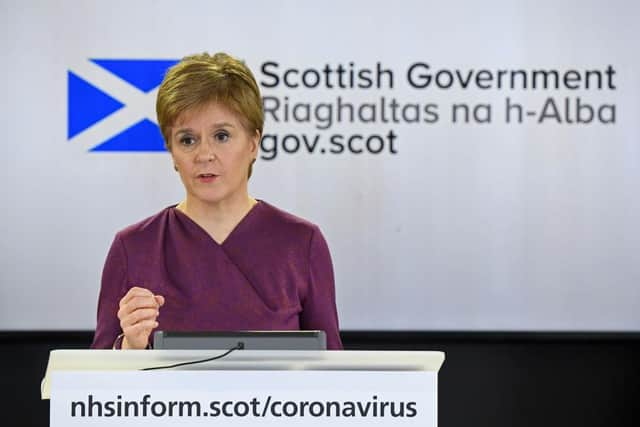Covid Scotland: UK public inquiry to review collaboration between UK and Scottish governments
The inquiry, which is due to begin with public hearings in 2023, will remain separate from the Scottish-specific inquiry chaired by Lady Poole and will attempt to avoid crossover, according to updated recommendations.
In a letter setting out her vision for the scope of the UK inquiry, chair Baroness Heather Hallet recommended it be centred on inequalities, “so that investigation into the unequal impacts of the pandemic runs through the whole inquiry”.
Advertisement
Hide AdAdvertisement
Hide AdThe recommended terms of reference will also now include the impact of the pandemic on mental health and on children and young people, along with original areas of focus such as pandemic preparedness and resilience.
It follows a four-week consultation period in which more than 20,000 people responded. Baroness Hallett and her team also met bereaved families and representatives from Scotland and across the UK.
It now falls to Prime Minister Boris Johnson to accept the new terms of reference, although it is expected that he will do so.
The inquiry is due to begin with public hearings in 2023.


Baroness Hallett wrote: “The consultation revealed areas where the terms of reference could be improved. I have listened to compelling arguments to focus on children and young people, the mental health and wellbeing of the UK population and collaboration between regional, devolved and national government, and the voluntary and community sector.
"I am therefore asking you to expand the terms of reference to include these issues.”
The terms of reference also include “intergovernmental decision-making”, as well as the communication and implementation of decisions.
The UK Covid inquiry is “committed to minimising any duplication of investigation, evidence gathering and reporting” with the Scottish inquiry.
According to the consultation report, the two inquiries will aim to work together on any areas of overlap.
Advertisement
Hide AdAdvertisement
Hide Ad"We will aim to arrange proceedings so that the Scottish Inquiry examines issues relating to devolved matters first, so that the UK Inquiry can consider whether any additional examination is genuinely necessary,” a spokesperson said.
Comments
Want to join the conversation? Please or to comment on this article.
